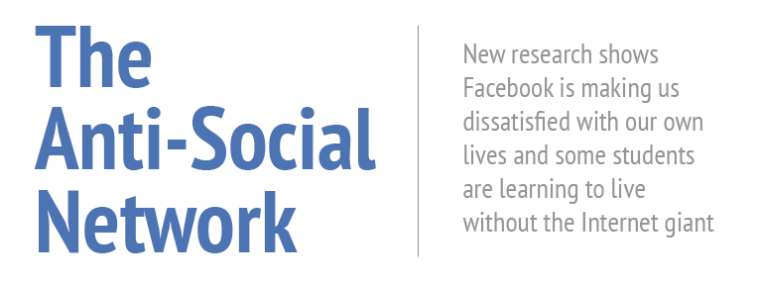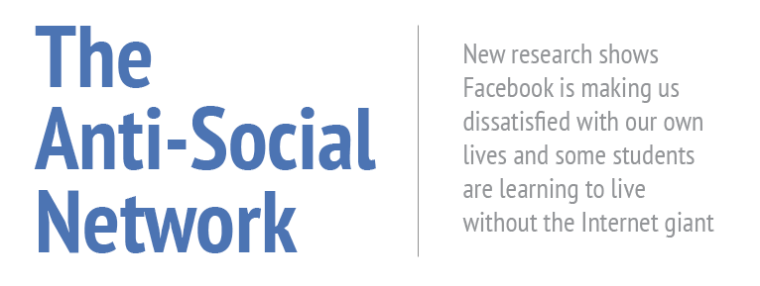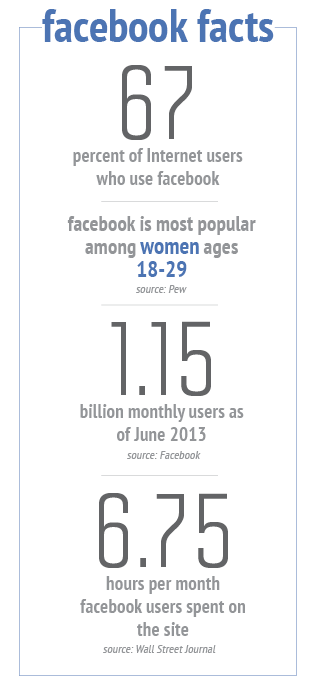Two years ago, Suhayla Ahmed was scrolling through her Facebook news feed when she realized the endless vacation photos and status updates were not making her feel any more connected to friends.
Her social networking habit was becoming a waste of time rather than an entertaining diversion, she said — so she decided to deactivate the account. And she hasn’t looked back since.
“The thing about Facebook is you don’t actually get to know people — you feel like you do, but really it’s just what they want you to see,” said Ahmed, a freshman community health major. “It takes away the reality of the situation, the reality of who people actually are.”
The site has a way of bringing out inner loneliness or feelings of isolation, she added.
“When you’re online, you see all of the things that people are doing and wonder why you’re being left out, or why they’re leading more exciting lives,” Ahmed said.
Two researchers, Ethan Kross of the University of Michigan and Philippe Verduyn of Leuven University in Belgium, set out to investigate the theory that Facebook use can cause loneliness, depression and low self-esteem. They monitored participants for two weeks by checking in with them five times a day, and found that the more frequently a person used Facebook, the worse they felt.
Regardless of their gender, size of their online networks and motivation behind their Facebook use, all of the respondents’ answers pointed to one conclusion: The more time they spent on the site, the less satisfied they were with life.
Young social media users are becoming disenchanted with Facebook, however — 42 percent of Facebook users aged 18 to 29 said the time they’ve spent on Facebook during a typical day has decreased over the past year, according to a Pew Research Center study released in February. The same study concludes that 61 percent of Facebook users have taken a break of at least a few weeks from the site.
Nika Nepali, a sophomore biochemistry major, said she periodically deactivates her Facebook account, but reactivates it when she starts to feel disconnected from her group of friends.
“As much as Facebook may make all of us feel bad about ourselves, when we’re not in that social realm, we miss out on a lot of what’s happening,” Nepali said. “Facebook is almost like an addiction. It’s a never-ending cycle where we get curious about other people and then start to feel worse about ourselves.”
Negative emotions have always existed, though — rather than creating them, Facebook might simply draw them out, said Kalyani Chadha, director of the Media, Self and Society College Park Scholars program. People are inherently self-critical and envious of others, she added.
“Online, you’re looking at people you may have never even met before, and you’re seeing the visual right in front of you,” she said. “It’s more visceral, and sometimes, that means people may feel worse.”
Other factors may be at work when someone feels dissatisfied by a Facebook experience, psychology lecturer Ryan Curtis said.
“Maybe they feel worse about themselves because they’re procrastinating what they’re supposed to be doing,” Curtis said. “It could be because they’re looking at desired social interactions and realizing that their current ones aren’t what they want them to be.
Ahmed said she has enjoyed developing her personal relationships in the absence of an online network. She has no plans to return to the Facebook world any time soon.
“If people want to hang out with me, they’ll text me or they’ll invite me face-to-face. If they don’t do that, it’s fine, I won’t hang out with them,” she said. “At least it isn’t a superficial ‘like’ or ‘comment’ on a website — it’s real, human contact.”





